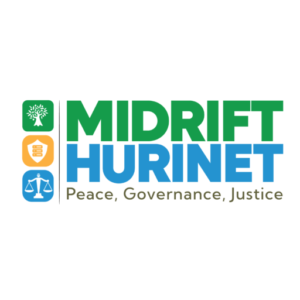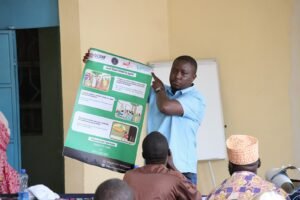A young man in the Kivumbini area of Nakuru Town East Sub County disagreed with his wife, which escalated to him hitting her.
She sought refuge in her mother’s house, but the husband followed her and further assaulted her and her mother and broke window panes in the home.
He left them nursing injuries and continued with his daily activities as if he did nothing.
A community member who got wind of the ordeal looked for the young man and enquired why he assaulted his wife and the mother-in-law.
He started crying, saying he was sorry and wanted to mend things up with her and her family.
He further said he loved his wife and didn’t know how he ended up hitting her and making things worse with her family and requested the community member to be the arbitrator.
The community members insisted that the matter must first be solved using the right structures using the Police, but there was a challenge. The girl’s family had not reported the matter and had no medical records.
The young man had also paid for the window panes he had broken.
When the Community member asked why they had not reported it, the girl and her mother said it was a domestic issue and would seek it out as a family.
This was part of the reflections during the Community Engagement Forum on Mental Health and Violence Prevention, facilitated by MIDRIFT HURINET in the Kivumbini ward.
The community members also decried normalized stereotypes that propagate GBV, such as “wanawake wanakuanga hivyo, unapigwa aje na bibi yako and mambo ya watu wawili wanajifunika blanketi moja wachana nayo” which are compounded with poor communication and communal peer pressure where people want to fit to set justifications socially.
The ongoing 16 days of activism against Gender-Based Violence correlates with the awareness campaign objective, which is to Strengthen safe, equitable, and timely access to quality MHPSS for survivors of violence and people in distress.
The 16 Days of Activism Against GBV is an international campaign aimed at mitigating violence against women and girls.
This year’s theme, “Towards Beijing +30: UNiTE to End Violence Against Women and Girls,” underscores the importance of revisiting and reinforcing commitments made in the Beijing Declaration and Platform for Action established in 1995. This declaration aimed to advance gender equality and empower women across various spheres, highlighting key issues such as poverty, education, health, violence, armed conflict, economic participation, political representation, institutional mechanisms for women’s advancement, human rights, media representation, environmental considerations, and the well-being of the girl child.
The declaration’s call to action emphasizes the UNiTE campaign’s expectation for all stakeholders, particularly state actors and private sector entities, to take definitive steps towards eradicating violence against women.
This includes a critical review of 30 years of progress on the Beijing Platform for Action, reaffirming political commitments, enhancing accountability, and ensuring adequate resourcing.
The 16 issues being addressed in the 16 days of activism against GBV are Domestic Violence, Sexual Violence, Child Marriage, Human Trafficking, Female Genital Mutilation (FGM), Violence in Conflict Settings, Economic Abuse, Emotional and Psychological Abuse, Cyber Violence and Online Harassment, Workplace Harassment, Femicide, Reproductive Coercion, Violence Against LGBTQ+ Individuals, Violence Against Indigenous Women,
Violence Against Women with Disabilities, Gender Stereotypes and Cultural Norms.
Preventing violence and improving mental health are interdependent goals. By addressing mental health issues, we can reduce risk factors for violence, and by preventing violence, we protect mental health and foster a safer, healthier society.
An integrated approach is essential for breaking the cycle of harm and promoting long-term community well-being.
The community members underscored the importance of having localized gender committees involving all stakeholders at the community level, advocating and mentoring youths as agents of youth-led strategies for youth response to GBV.
Men GBV champions have conversations with their fellow men on normalized stereotypes perpetuating GBV, targeted mindset shifts through awareness campaigns on GBV, handling such cases from reporting to the judicial process and sharing the information from the engagement with
their fellow community members.
In a similar forum in the Bondeni area, still in Nakuru Town East Sub County, the community discussed at length the practicability of the nexus between GBV and Mental Health using contextualized scenarios in their communities.
GBV and mental health are deeply intertwined, with GBV often leading to severe mental health consequences and mental health challenges, increasing vulnerability to GBV.
Addressing this nexus requires a holistic approach integrating prevention, support, and empowerment to break the cycle and promote individual and societal well-being.
These are manifested in the following scenarios;
1. Violence as a Cause of Mental Health Issues-Living in violent environments creates prolonged stress, negatively affecting mental health and emotional well-being.
2. Mental Health Issues as a Risk Factor for Violence-Marginalized individuals with mental health challenges are at higher risk of discrimination, exclusion, and violence.
3. Shared Underlying Factors- Harmful beliefs about masculinity, gender roles, or stigma around mental health can perpetuate cycles of violence and emotional harm.
4. The Role of Prevention in Breaking the Cycle- Comprehensive approaches to violence prevention include mental health services to build resilient and healthier communities.
5. Integrated Solutions-Coordinating efforts in healthcare, justice, and social services ensure individuals at risk receive mental health support and protection from violence.
A scenario was explained in which a deaf lady was touched inappropriately by youths around her home area.
They were not aware she was deaf.
One day, a boy spanked her; she was furious about it, and it was at that moment that they realized she had hearing impairments.
She reported the matter to the Police station, but she was not assisted due to the communication barrier.
This led her to have mental health issues, and it took the efforts of a community Health Promoter to have her undergo counselling.
Mental health management requires a combination of self-care, social support, and professional intervention.
Consistently practising these strategies can promote long-term mental wellness.
If you or someone you know is struggling, reaching out to mental health services is a critical step.
Some of the coping strategies community members use include a supportive network, developing healthy habits such as physical activity, reframing negative thoughts into constructive ones, which can improve outlook and emotional resilience, and limiting time spent on social media or in environments that increase anxiety.
As a call to action, community members agreed to attend Public Participation forums at all levels of Government and advocate for Gender responsive budgets, advocating for gender desks in all Police stations with gender-sensitive and trauma-informed officers present and creating more awareness on Gender-Based Violence and Mental Health using existing networks from partners and other stakeholders.
By
Jacob Karani



